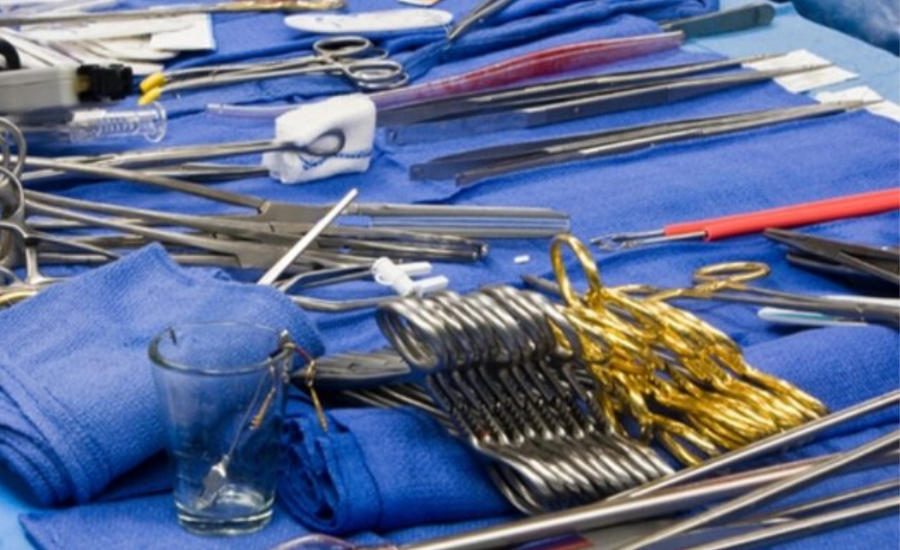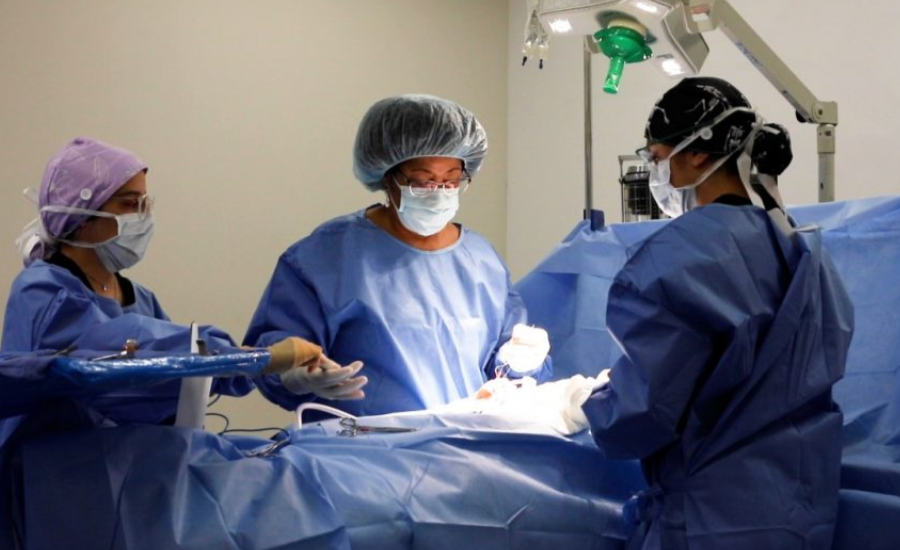Comprehensive Guide to Surgical Tech Jobs: Responsibilities, Requirements, and Career Insights
The healthcare industry is a dynamic and expansive field, with numerous professions working in tandem to ensure effective patient care and medical outcomes. Among these roles, surgical technologists hold a crucial position. Often referred to as the unsung heroes of the operating room, surgical techs play an indispensable role in surgical procedures. From preparing the operating environment to assisting surgeons during critical moments, they are pivotal in maintaining the precision and efficiency of surgical operations. This article provides an in-depth exploration of surgical tech jobs, including their responsibilities, educational pathways, necessary skills, career prospects, and insights into overcoming challenges within the field.
What is a Surgical Technologist?
A surgical technologist, also known as a scrub tech or operating room technician, is a specialized healthcare professional who works closely with surgeons, anesthesiologists, and nurses during surgical procedures. Their primary responsibility is to create and maintain a safe, sterile environment to facilitate successful operations. They manage surgical instruments, assist in patient preparation, and ensure every step of the surgical process is seamless.
Surgical technologists bridge the gap between technical expertise and patient care, playing a vital role in ensuring optimal outcomes for patients undergoing surgeries. Their ability to anticipate the needs of surgeons and quickly adapt to evolving scenarios in the operating room highlights their value to the medical team.
Key Responsibilities of a Surgical Technologist
Surgical technologists are multitaskers who take on a variety of responsibilities before, during, and after surgical procedures. Each task contributes to patient safety and the efficiency of the surgical team. Here’s a closer look at their duties:
Preparation of the Operating Room
Before any surgery, surgical techs meticulously prepare the operating room:
- Equipment and Instrumentation: Arrange surgical instruments, devices, and sterile drapes according to the procedure’s requirements. Every item must be readily accessible and in working order.
- Sterilization: Conduct rigorous sterilization protocols to ensure a germ-free environment.
- Functionality Checks: Verify that all surgical equipment, such as lighting, suction machines, and monitoring devices, are functioning optimally before the procedure.

Patient Preparation
Surgical technologists also assist in getting patients ready for surgery:
- Transport: Escort patients to the operating room, ensuring they are calm and comfortable.
- Positioning: Collaborate with surgeons and anesthesiologists to position patients appropriately, taking into account the type of surgery and the patient’s safety.
- Disinfection: Apply antiseptic solutions to the surgical site and ensure it is properly draped to maintain sterility.
Maintaining a Sterile Environment
The prevention of infections is a top priority in surgical settings:
- Aseptic Techniques: Adhere to strict sterile procedures, minimizing any risk of contamination.
- Field Monitoring: Regularly inspect sterile areas during the operation and address any breaches promptly.
Instrument Handling
During surgery, surgical technologists act as the surgeon’s extra pair of hands:
- Passing Instruments: Anticipate the surgeon’s needs, swiftly passing the required instruments and supplies.
- Adaptability: Remain attentive to changes in the surgical procedure, ensuring minimal interruptions.
Post-Operative Duties
Once the procedure concludes, surgical techs perform several critical follow-ups:
- Instrument Count: Double-check the inventory of sponges, tools, and needles to confirm nothing remains inside the patient.
- Cleanup: Sterilize and restock the operating room to prepare for the next procedure.
Documentation
Accurate record-keeping is an integral part of their role:
- Surgical Logs: Document the details of the procedure, including the tools used, any complications, and other pertinent data.
Education and Training for Surgical Technologists
The pathway to becoming a surgical technologist combines formal education, hands-on training, and certification. Here’s a comprehensive breakdown:
Educational Requirements
Surgical technologists typically pursue one of two main educational routes:
- Certificate Programs: These programs, lasting 12-18 months, provide a focused curriculum that covers essential knowledge and skills.
- Associate Degree Programs: Spanning approximately two years, these programs offer a more in-depth education, including additional coursework in general sciences and surgical technology.
Both programs include a blend of theoretical instruction and clinical experience, enabling students to apply their knowledge in real-world settings.
Choosing an Accredited Program
Prospective students should select programs accredited by respected organizations such as:
- The Accrediting Bureau of Health Education Schools (ABHES)
Accreditation ensures the program meets rigorous educational standards and prepares students for certification exams.
Certification
While certification is not mandatory in all states, it is highly recommended to improve job prospects and professional credibility. Common certifications include:
- Certified Surgical Technologist (CST): Administered by the National Board of Surgical Technology and Surgical Assisting (NBSTSA), this credential demonstrates a high level of competence.
- Tech in Surgery – Certified (TS-C): Offered by the National Center for Competency Testing (NCCT), this certification validates technical expertise.
Certification exams assess knowledge of surgical techniques, safety protocols, and equipment handling. Maintaining certification requires continuing education and periodic renewal.
Essential Skills for Success
Surgical technologists need a diverse skill set to excel in this demanding role:
- Attention to Detail: Precision is vital in maintaining sterility and ensuring correct instrument usage.
- Manual Dexterity: Skilled hand-eye coordination is crucial for handling delicate instruments efficiently.
- Stress Management: The high-stakes environment of the operating room requires mental resilience and composure.
- Team Collaboration: Effective communication and teamwork are necessary to support surgeons and other medical staff.
- Adaptability: The ability to think quickly and respond to unexpected challenges ensures the success of surgical procedures.

Work Environment
Surgical technologists typically work in:
- Hospitals: The majority are employed in hospital settings, including emergency departments and trauma units.
- Ambulatory Surgical Centers: These facilities handle outpatient surgeries, offering a less intensive environment.
- Specialty Clinics: Surgical techs in these settings often focus on specific types of surgeries, such as orthopedics or ophthalmology.
The role demands physical stamina, as techs often stand for extended periods and handle heavy equipment. Shift schedules can include nights, weekends, and holidays, depending on the employer.
Salary and Job Outlook
Average Salary
The median annual salary for surgical technologists is approximately $49,000, with top earners exceeding $75,000. Compensation varies by factors such as experience, location, and specialization.
Factors Influencing Pay
- Geographic Location: Urban centers and regions with high living costs tend to offer higher salaries.
- Specialization: Techs involved in complex surgeries, like cardiovascular or robotic-assisted procedures, command higher pay.
- Experience Level: Experienced professionals and those with advanced certifications earn more than entry-level workers.
Job Growth
The demand for surgical technologists is projected to grow by 6% over the next decade, driven by:
- An aging population requiring more surgical interventions.
- Advances in surgical techniques and medical technology.
Career Advancement Opportunities
Surgical technologists have numerous opportunities for career growth:
- Specialization: Focusing on specific fields such as neurosurgery or pediatrics allows for increased expertise and earning potential.
- Surgical First Assistant: With additional training, techs can take on greater responsibilities, assisting directly in surgeries.
- Healthcare Administration: Experienced techs may move into leadership roles, managing surgical departments or training new hires.
- Further Education: Many surgical technologists pursue advanced degrees in nursing or physician assistant programs.
Challenges in Surgical Tech Jobs
Despite its rewards, the profession has its challenges:
- Physical Strain: Long hours on your feet and handling heavy equipment can be taxing.
- High-Pressure Environment: Operating rooms are intense settings that demand focus and quick decision-making.
- Health Risks: Strict adherence to safety protocols is necessary to prevent exposure to infections and hazardous materials.
How to Get Started
- Research Accredited Programs: Look for CAAHEP or ABHES-accredited schools that offer flexible schedules and robust clinical training.
- Earn Certification: Prepare for and pass certification exams like the CST or TS-C to enhance your employability.
- Gain Experience: Start with entry-level positions to develop your skills and build a professional network.
- Join Professional Organizations: Engage with groups like the Association of Surgical Technologists (AST) to access resources and stay updated on industry trends.
Why Choose a Career in Surgical Technology?
Surgical tech jobs offer a fulfilling blend of job security, competitive pay, and the satisfaction of directly impacting patients’ lives. For those seeking a dynamic and meaningful career in healthcare, becoming a surgical technologist is a compelling choice.
Frequently Asked Questions About Surgical Tech Jobs
Q: What is the typical educational requirement to become a surgical technologist?
A: A certificate or an associate degree from an accredited program is typically required. Certificate programs last around 12–18 months, while associate degrees take about two years to complete.
Q: Is certification mandatory for surgical technologists?
A: Certification is not mandatory in all states but is highly recommended for better job prospects and professional credibility. Certifications like Certified Surgical Technologist (CST) or Tech in Surgery – Certified (TS-C) are common.
Q: What skills are essential for success as a surgical technologist?
A: Key skills include attention to detail, manual dexterity, teamwork, adaptability, stress management, and effective communication.
Q: Where do surgical technologists typically work?
A: They work in hospitals, ambulatory surgical centers, and specialty clinics. Most are employed in hospital operating rooms or emergency departments.
Q: What is the average salary for surgical technologists?
A: The median annual salary is around $49,000, but experienced professionals or those specializing in advanced surgical techniques can earn upwards of $75,000.
Q: What are the primary responsibilities of a surgical technologist?
A: Responsibilities include preparing the operating room, sterilizing equipment, assisting during surgeries, maintaining sterility, and documenting the procedure details.
Q: What are the advancement opportunities in this field?
A: Career advancements include roles as a surgical first assistant, specializing in specific surgical fields, or transitioning into healthcare administration or advanced medical professions like nursing or physician assistance.
Q: What challenges might a surgical technologist face?
A: Challenges include physical demands, high-pressure environments, and exposure to health risks, all of which require strict adherence to safety protocols.
Q: Is the job outlook for surgical technologists positive?
A: Yes, the demand is projected to grow by 6% over the next decade, driven by an aging population and advancements in medical technology.
Q: How can someone get started in this career?
A: Start by researching accredited programs, earning a certification, gaining entry-level experience, and networking through professional organizations like the Association of Surgical Technologists (AST).
Conclusion
Surgical technologists are vital healthcare professionals who ensure the smooth execution of surgeries by maintaining a sterile environment, preparing instruments, and assisting the surgical team. This rewarding career requires completing a certificate or associate degree program, obtaining certification, and cultivating essential skills like precision, adaptability, and teamwork. With a median salary of $49,000 and a promising job outlook, it offers job security, growth opportunities, and the chance to make a meaningful impact on patients’ lives. While the role demands physical stamina and the ability to thrive in high-pressure environments, it is a compelling choice for those passionate about healthcare and contributing to life-saving procedures. To start this journey, aspiring surgical technologists should enroll in an accredited program, earn certification, and engage with professional organizations to stay ahead in this dynamic field.
Read Next: glutem







